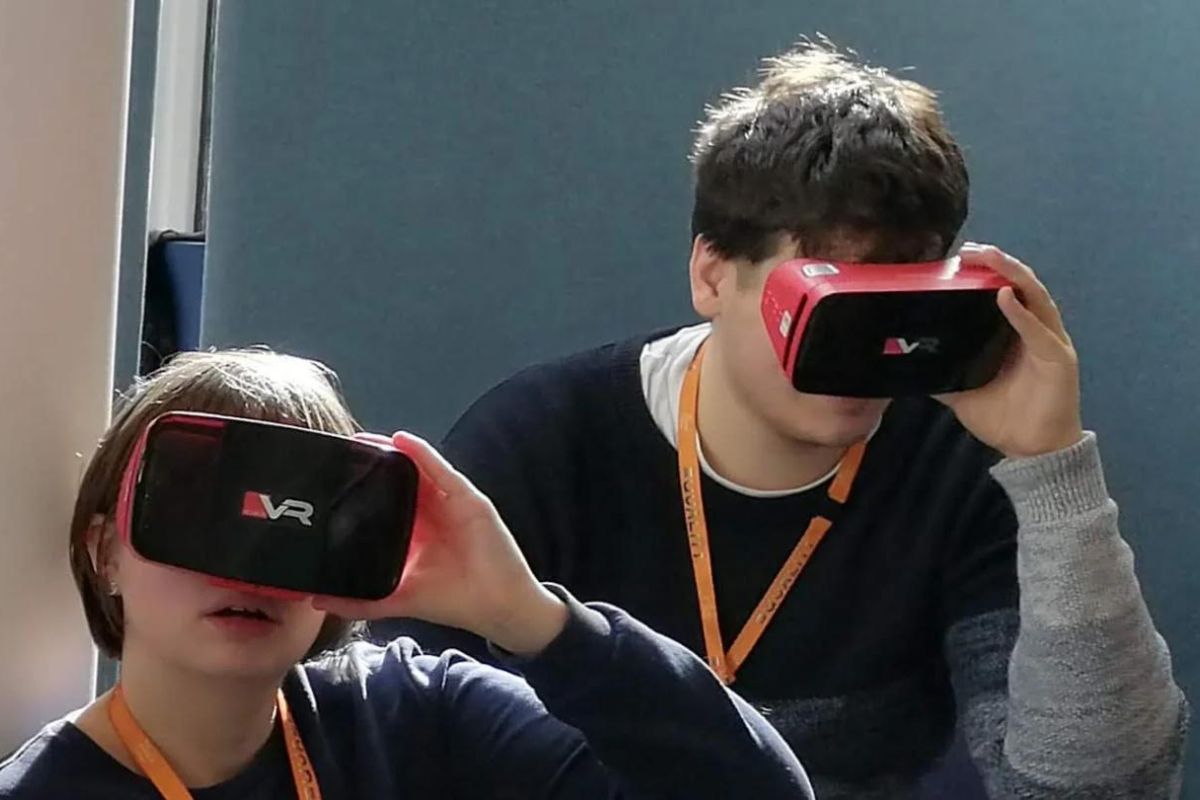Teaching, wellbeing and telemedicine: transforming neurology education

The COVID-19 pandemic has disrupted neurology education, but lessons learned can transform neurology training for years to come.
Research published by Neurology finds shared lessons from adjustments to teaching, clinical training and wellbeing made by neurology educators around the world.
Lead author Dr Stefano Sandrone from Imperial’s Department of Brain Sciences collaborated with fellow educators from six US universities to share experiences of pandemic teaching, identify shared learning and suggest areas requiring action.
Dr Sandrone said: “The COVID-19 pandemic disrupted neurology education. But we must seize this moment to re-think and transform neurology education. In this work, we put three areas under the spotlight: teaching, wellbeing and telemedicine. We need to adopt innovative and inclusive teaching approaches. While doing this, we must signpost and expand services dedicated to wellbeing. In parallel, a broader adoption of telemedicine can widen access to healthcare and add a new dimension to the learning experience. These are the first steps towards mentoring a stronger generation of neurologists and neuroscientists.”
Teaching
With campus closures and social distancing measures in place, a mix of delivery approaches were quickly developed, including live and prerecorded lectures, small group discussions on Zoom and shadowing of outpatient phone calls and video calls. The flexibility of online teaching has made it easier for cross-institution lectures and collaborations to happen, with some co-created resources being made freely available online.
Whilst ward teaching has continued remotely with students attending video visits, reduced access to elective procedures and fewer neurology patients in hospitals has reduced clinical experiences for trainees. It has also proved harder to teach practical skills remotely.
With a mix of in-person and virtual teaching likely to continue, the authors argue that integrating active learning and exploiting the best bits of online teaching can improve neurology teaching. It is important to encourage interactivity and create virtual spaces to enable this. Additionally, online learning can also deepen the pool of educators and widen participation and educational opportunities globally. Tackling new challenges is essential, notably the safe use and storage of trainees and patients’ data in the online context.
Wellbeing
Moving mentoring sessions online, allowing trainees more flexibility and scheduling team gatherings via online platforms can help to ensure trainees feel supported and create a sense of belonging. However, the researchers found that fears of falling ill from COVID-19 and other pandemic related pressures, such as isolation and balancing family needs have affected neurology trainees’ wellbeing.
It is essential to expand and signpost wellbeing, counselling and mindfulness resources as well as increasing the availability and accessibility of support groups. Building a stronger sense of belonging within the cohort can be done through simple things such as virtual coffees.
Telemedicine
Although initially perceived as a challenge by trainees and residents, the pandemic has rapidly increased the use of telemedicine across neurology, with patients able to gain access to a neurologist easily and quickly. Trainees have had to rapidly learn how to use live telemedicine such as evaluating a patient’s living situation and involving family members in the visit.
Professor Paola Piccini, Professor of Neurology and Head of the Division of Neurology, said: “Telemedicine has quickly become an alternative or a complementary tool for clinical practice. It can certainly be integrated into the curriculum, given its educational value and the rapidity of diffusion across different medical disciplines”.
Telemedicine can be easily built into in the neurology curriculum and doing so will widen trainees’ skills. It may also expose them to alternative career paths and interests such as global health or telemedicine.
Best practice and educational research
The study also championed the importance of promoting international collaborations, sharing best practices across institutions, evaluating their impact via educational research and ensuring that changes to neurology education are driven by data. This can be done by evaluating new teaching practices and getting the views of trainees via interviews, focus groups and surveys.












Responses